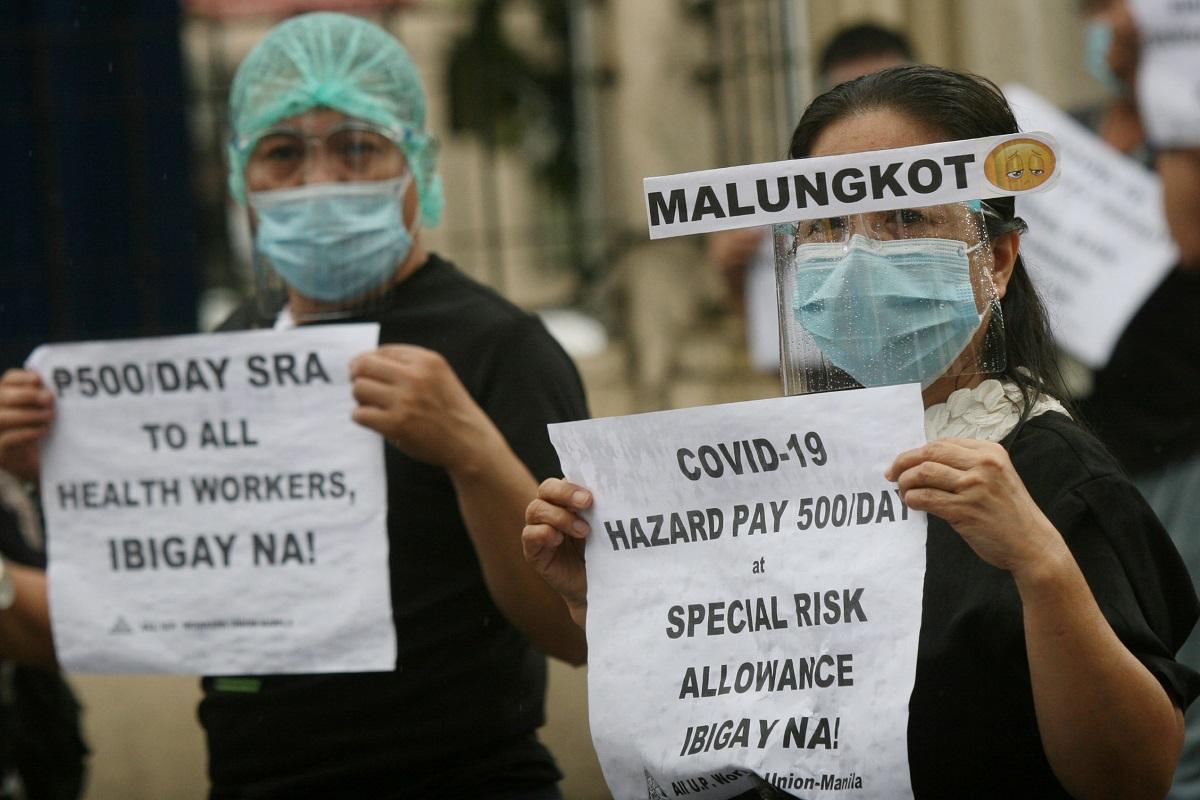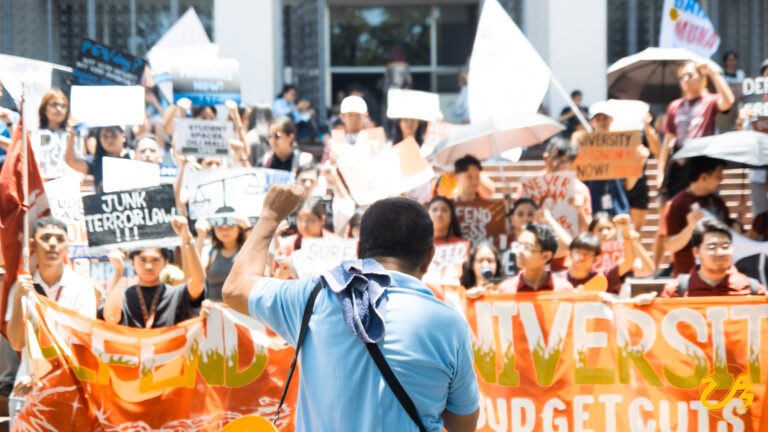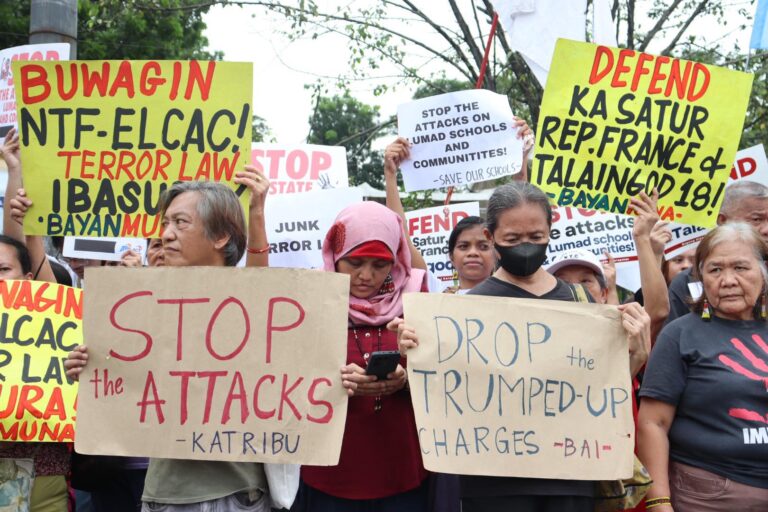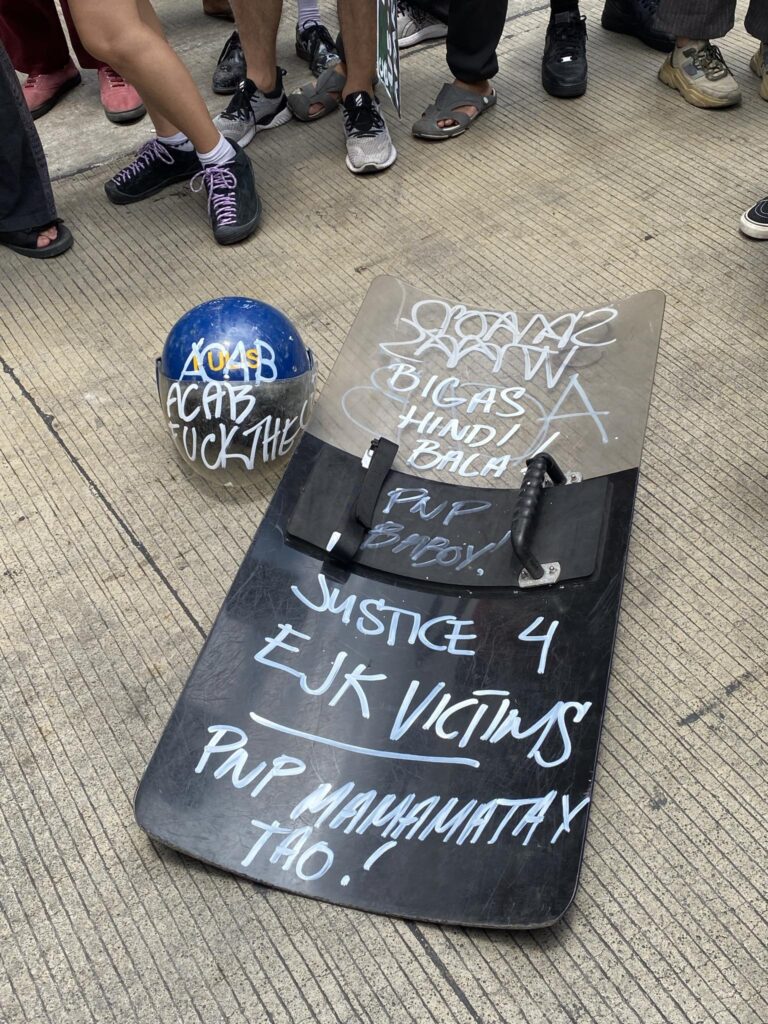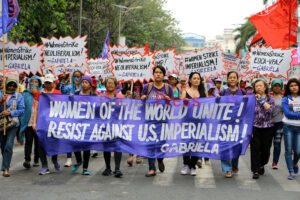
When it comes to dealing with COVID-19, the Philippines falls far short of expectations compared to the rest of Southeast Asia and much of the world.
Despite a year of militaristic lockdowns with much oppression but meager aid, infections are now surging at an unprecedented rate. Despite a plethora of crises, the Duterte administration has continued to pursue and implement unscientific policies to the people’s detriment.
Cebu implements “air purifier rule” for PUVs
As COVID-19 cases rise in Cebu, Governor Gwendolyn Garcia has required drivers and conductors of public utility vehicles (PUVs) to wear air purifier necklaces on top of other health and safety protocols including face masks and face shields, effective August 16, 2021.
Following this directive, transport group Pagkakaisa ng mga Samahan ng Tsuper at Opereytor Nationwide (PISTON) immediately expressed their frustration, referring to the order as a “band-aid solution”.
According to Mody Floranda, national president of PISTON, most workers in the transport sector, particularly drivers and small-time operators, still have not received the promised subsidy from the government since the pandemic began.
After the government imposed lockdowns that halted all forms of mass transportation, livelihoods in the transport sector suffered a hit. As a result, thousands of unemployed PUV drivers and operators are forced to plie the streets begging for money.
Greg Perez, chairperson of Piston – Cebu, also protested the decision, claiming that the personal air purifier requirement is only an added burden for PUV drivers and conductors who have been adversely affected by the ongoing pandemic.
“Personal air purifiers retail for about P200 and above. The average driver in Cebu makes only about P300-500 per day, after rent and gasoline expenses. Sometimes, they don’t make a profit. Just enough to pay for gasoline expenses after almost 16 hours of driving,” Perez explained in a statement.
He also added, “The P300-500 income from drivers also depends on the amount of work put in by the driver and on days when there’s enough passengers.” Thus, mandating an additional expenditure is more of a financial burden than a solution on the part of the ordinary workers in the transport industry.
While Garcia’s government is pushing for the measure’s implementation, the Department of Health (DOH) has stressed its opposition against the use of air purifying necklaces.
“Right now we do not recommend the use of necklace air purifiers, and evidence and experts say that it’s not going to provide you with protection… I hope we do not use it,” DOH Undersecretary Maria Rosario Vergeire said.
“What it will do, it will give that false sense of security to the public that may lead to complacency,” she added.
The use of an ionizing air purifier to reduce COVID-19 infection is also highly discouraged by the Philippine Covid-19 Living Clinical Practice Guidelines. The Institute of Clinical Epidemiology, National Institute of Health – University of the Philippines Manila developed these guidelines, together with the Philippines Society for Microbiology and Infectious Diseases.
Moreover, the panel warned that ionizers produce ozone, which is “a dangerous respiratory irritant that poses a health risk to users.”
Unscientific measures continue to mar pandemic response
The Duterte administration’s refusal to let science and experts from pertinent fields take the lead in its pandemic response has prevented the Philippines from safely and gradually reopening.
Prior to the air purifier requirement, the Cebu provincial government had also enjoined its citizens to practice steam inhalation – known locally as tuob– as a way to stem the spread of the virus. The local government even spent P2.5 million on the acquisition of at least 1,000 tuob kits at P2,500 each, which have been distributed to asymptomatic COVID-19 patients confined in barangay isolation centers (BICs) since May.
Another measure that manifests the government’s lack of attention to science is the mandatory wearing of face shields in all public areas. Among all countries, only the Philippines still enforces the wearing of face shields today.
Many Filipinos, including lawmakers, urged the government to abolish the policy as it has been proven ineffective. A study published in the journal Physics of Fluids highlights a disadvantage of face shields in regulating droplet distribution. Researchers discovered that even though face shields prevented the initial entry of droplets, much smaller droplets escape from the gaps in the bottom and on the sides of the shield.
Apart from that, it may be uncomfortable to wear and can lead to accidents as it becomes steamy and fogged up. People who wear face shields on top of their masks may also need to speak louder when communicating with others.
Nevertheless, the Department of Health (DOH) has stubbornly insisted that face shields provide an additional layer of protection aside from mask wearing and other safety protocols that science has proven effective. Contrary to its claims, however, more than a year of wearing face shields has done nothing to shorten the world’s longest pandemic-induced lockdown.
In fact, various medical organizations, such as the US Center for Disease Control and Prevention (CDC) and the Philippine Medical Association, do not recommend the wearing of face-shields and the implementation of other unscientific and costly measures.
“Face shields are not as effective at protecting you or the people around you from respiratory droplets,” said the CDC. It also noted that face shields cannot serve as substitutes for face masks.
Meanwhile, the Philippine Medical Association, the umbrella organization of physicians in the Philippines, condemned the practice of tuob, stating that it does not help COVID-19 patients recover.
Despite these stances by reliable medical and health organizations all over the world, the Duterte administration still refuses to let science speak for itself. In lieu of a task force consisting of prominent public health experts, Duterte appointed retired military generals to lead the pandemic response and vaccination rollout because of their expertise in logistics.
The retired generals’ involvement in the government’s pandemic response contradicts convention, as it opposes the idea that health professionals are expected to take the lead amid a health catastrophe. However, Duterte’s dependence on the military has become the norm. To make matters worse, corruption controversies besieged the country’s key healthcare agencies, specifically the Department of Health (DOH) and Philippine Health Insurance Corporation (PhilHealth). To note, a Duterte ally and a retired general from Duterte’s hometown manage these agencies.
As a result, the Philippines has one of the longest and most aggressive lockdowns in the world. In addition, millions of Filipinos who have been cheated of medical assistance and financial aid continue to suffer from hunger, poverty, and unemployment and thousands have already died from COVID-19.
Not only is the Duterte administration brazenly unscientific, it is also anti-poor. These face shields and ‘tuob’ kits are being financially shouldered by the country’s taxpayers; they are not provided for free by the government.
While the government focused on enforcing stringent health containment measures, it is obvious that little thought was given to reducing its impact on the underprivileged. Social distancing and handwashing are difficult to enforce in the slums, where people are crowded. Even in the best of times, the poor struggle to afford their basic needs, let alone purchase these new normal essentials.
Hence, these unnecessary measures merely add to the financial burden of Filipinos. The poor and marginalized, who have been disproportionately affected by the pandemic, suffer the most.
What the people really need to end the pandemic
It is evident that the Philippines is finding it difficult to cope with the devastating effects of the pandemic. And the Duterte administration deserves much of the blame.
Repetitive lockdowns will be for naught without sufficient aid and reinforced vaccination programs, swab testing, and contact tracing efforts, and free treatment for COVID-19 patients.
Billions in taxpayer money should not be used for unnecessary projects and policies such as beautification in Manila Bay, air purifier gadgets, and tuob kits. Instead, funds should be funnelled as aid to thousands of impoverished families severely affected by the pandemic, subsidy to hospitals, support for COVID-19 patients, and benefits to healthcare workers.
When governments fail to contain COVID-19, they are the one who invariably bear the brunt of the consequences. Indeed, the pandemic has exposed the glaring disparities in access to adequate food, shelter, and health care services among the populace.
With all that said, it is apparent how incompetence has ravaged the situation in the Philippines. It is only fair that those in power must stop abusing their authority by enacting evidence-based public health policies rather than unscientific, wasteful, and anti-poor policies that will not benefit the country.
It is time to hold the Duterte administration accountable and demand concrete, pro-people policies in alleviating the crisis engendered by the pandemic.
Featured image courtesy of GMA News.


